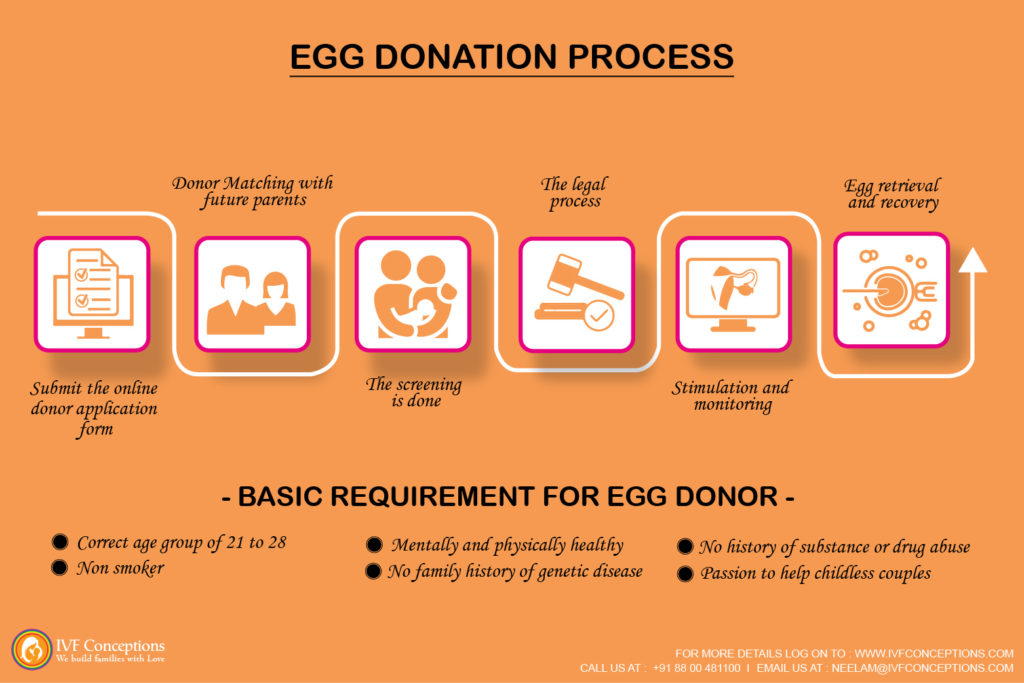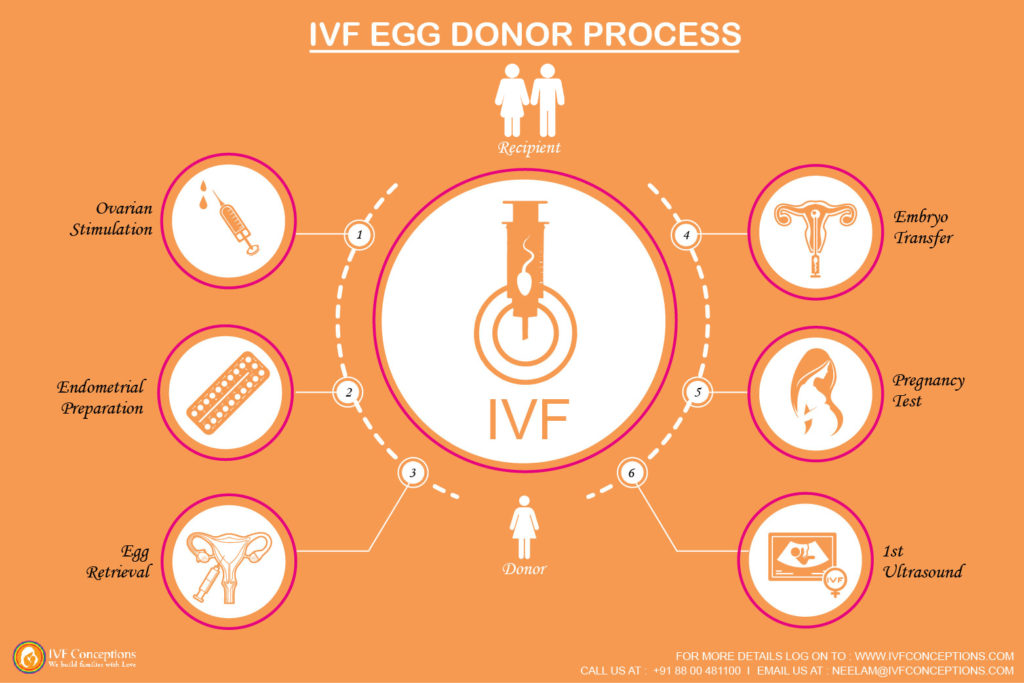What is the Egg Donation Process? Your guide to egg donor surrogacy in 2025
Approximately 1.7% of all infants born in the United States every year are conceived using ART. Out of these almost 25% of the IVF cycles are done with the use of egg donors. The requirement for the egg donor process is increasing every year as the percentage of infertile couples increases.
Egg donation has become an integral part of the Assisted Reproductive Technique (ART). The practice of IVF with the egg donor process is becoming more common, especially among women over 40 years of age.
In IVF with an egg donor, the child is biologically connected to the egg donor, which means, half of the genes that the baby has come from the egg donor, and half of the genes come from the intended father. That is why, for most prospective parents, choosing an egg donor is an important decision.
The Egg Donation Process: A Comprehensive Guide
Egg donation is a medical process in which a fertile woman donates her eggs to help another individual or couple conceive. This procedure is commonly used in cases of infertility due to age, medical conditions, or genetic concerns. Below is a comprehensive, well-researched guide to the egg donation process.
Get in touch for FREE SURROGACY CONSULTING:
Mobile: +91-8800481100 ( WhatsApp, Line, Viber)
Email: neelam@ivfconceptions.com
If you are looking for an ideal egg donor of Caucasian, Asian, or other ethnicity egg donor, you can choose an egg donor via a leading egg donor agency like – Sunshine Egg Donor Agency
What we will cover in this article:
What is egg donation?
Who should consider using an egg donor?
Who can become an egg donor?
What are egg donation requirements?
How to find your egg donor?
Things to look for when you choose your egg donor
What tests are performed on the donor?
How Much Does Egg Donor Cost?
Egg Donation Process- Step-by-Step Guide
FAQ About Egg Donor Process

What is egg donation?
Egg donation is a medical procedure in infertility treatment, where a young woman donates her eggs (ovum) to another woman (recipient or intended mother) who may not be able to produce viable eggs on her own for various reasons. The donated eggs are then used as part of an assisted reproductive technology (ART) treatment to help the recipient woman conceive.
The process of egg donation consists of in vitro fertilization (IVF) technology, where the eggs are retrieved from the donor’s ovaries and fertilized with the male partner or sperm donor’s sperm in the laboratory.
The resulting embryos are then transferred to the recipient’s uterus (or sometimes to the surrogate mother in the case of egg donor surrogacy). In some cases, the eggs may also be frozen and stored for later use.
Egg donation is also known as third-party reproduction because the eggs come from a donor who is not the intended mother.
The decision to become an egg donor is a personal one and requires careful consideration after knowing the risks of egg donation. Potential donors undergo a rigorous screening process, including medical and psychological evaluations, to ensure their suitability for donation.
Who Can Become an Egg Donor?
Egg donors must meet strict medical and psychological criteria. According to the American Society for Reproductive Medicine (ASRM), eligibility typically includes:
- Age between 21-32 years (varies by clinic and country)
- Good physical and mental health
- No history of genetic disorders
- Non-smoker and drug-free
- Regular menstrual cycles
- BMI within a healthy range
Risks and Considerations
While egg donation is safe, some risks include:
- Ovarian Hyperstimulation Syndrome (OHSS): Excessive ovarian response to medication.
- Multiple pregnancies: If more than one embryo is transferred.
- Emotional impact: Psychological counseling is recommended for donors.
Legal and Ethical Aspects
Egg donation laws vary globally:
- USA: Egg donors are compensated; contracts outline no parental rights.
- UK: Donation is altruistic; donors can be contacted by offspring at 18.
- EU & Asia: Laws differ significantly; intended parents should consult experts.
Additional guide for egg donor surrogacy
Ovarian Rejuvenation Treatment with PRP (Platelet-rich plasma)
Whose Egg is Used in Surrogacy?
Endometriosis and Pregnancy: Can You Get Pregnant With Endometriosis?
Embryo Grading and IVF Success Rates
 Who should consider using an egg donor?
Who should consider using an egg donor?
Now that we know what egg donation is, let’s jump into the next topic, who needs an egg donor?
Women who are unable to produce viable eggs or have a medical condition that makes it risky for them to conceive with their own eggs may consider using an egg donor as an option for assisted reproduction technology (ART)
This includes women who have experienced premature ovarian failure, have undergone cancer treatments that affect fertility, or have a genetic condition that increases the risk of passing on a genetic disorder to their offspring.
Additionally, women who are over the age of 40 and are experiencing an age-related decline in their ovarian reserve may also consider using donor eggs, as the chances of successful conception decrease with age
If a couple cannot have a successful pregnancy even after multiple In-Vitro Fertilization (IVF), they might need an egg donor. The reasons for IVF failure is many, and it is your fertility doctor who analyzes the reasons and then advises the best possible solutions for successful IVF. Using an egg donor is the most common suggestion given, and this is known as IVF with an egg donor.
In IVF with an egg donor, the egg donor’s eggs are fertilized with the male partner’s sperm to create embryos. These embryos are then implanted in the female partner’s uterus. The baby is carried and delivered by the female partner, but she is not genetically linked with the baby.
Who can consider using an egg donor:
- Premature ovarian failure is a condition in which a woman has menopause much earlier than usual, typically before age 40. For such couples, IVF with an egg donor is the most recommended infertility treatment
- The reduced ovarian reserve in the female partner. Meaning that the eggs are low quality and fewer in number. You might experience this due to age-related factors. For example, after 40 years, the fertility of women drops very quickly.
- Due to genetically transmitted diseases. No parent would like to pass the genetic abnormality to the child. So, using an egg donor is an obvious choice, if parents have X-related chromosome abnormalities.
- A couple of failed IVF Cycles, especially when your doctor thinks that the quality of your eggs may be the problem.
- Surrogacy with egg donation– in most gestational surrogacy cases, couples need an egg donor to have a successful surrogate pregnancy. For gay couples’ surrogacy and single male surrogacy, using an egg donor for creating embryos is a must.
Who can become an egg donor?
Becoming an egg donor is not a casual task. It is a commitment where adherence to a medical procedure is a must. There are certain requirements that must be met.
- She should be between the ages of 18 and 31
- Being in good health
- Having regular menstrual cycles
- Having no personal or family history of genetic or hereditary disorders
- Additionally, some agencies may require that donors have a certain level of education, be of a certain height, weight, or ethnicity, or have certain physical or personal characteristics.
- Potential egg donors typically need to go through a screening process that includes medical and psychological evaluations to ensure that they are physically and mentally capable of donating their eggs.
 What are egg donation requirements?
What are egg donation requirements?
Egg donation requirements vary from case to case. We have seen that intended parents are specific about the kind of egg donor they need. Some couples are over-obsessed with the physical characteristics or education of the egg donor. But a successful egg donation is never measured by looks. The success of the egg donation process is only calculated by the number and quality of the eggs retrieved, and eventually, if a successful pregnancy is achieved.
Successful pregnancy depends upon the number of embryo transfers with multiple high-quality embryos (many times. The more high-quality embryos you have, the more chances you have to repeat the embryo transfer, and the greater your chance of success.
So, to have more high-grade embryos, you need an egg donor who has a good number of mature eggs and more embryos.
Let’s discuss some considerations that intended parents need to make before their egg donor program:
About personal consideration:
- Opting for a known or anonymous donor
- Keeping future contact with donors and sharing the pics and information of the baby
- Telling your family about the egg donation
About legal considerations:
- Paying enough attention to a legal matter is essential.
- In most cases, your fertility clinic will draw up the necessary paperwork, but it is always worth having this checked by your independent expert solicitor.
- Your egg donor should agree to relinquish any claim to the offspring produced by their donation.
Egg donor requirement consideration:
- The egg donor age limit is an essential factor to consider. The young egg donor has fewer chances of genetic mutation and has improved fertility. The right age group of 21 to 30 years. Although it can be case-specific, your fertility doctor is the right person to recommend after doing an anti-Mullerian hormone (AMH) and antral follicle scan (AFC) of the egg donor.
- Should be a non-smoker with drug-free/alcohol-free habits.
- Egg donors should have no genetically carried medical conditions.
- She should be free of any medical or psychological illness.
- Egg donor needs to clear Pre-IVF screening tests, like CBC, BL group, ESR, HIV, VDRL, HBsAg, HCV, T3, T4, TSH, SGPT, SGOT, Sr. Creatinine, Thalassemia to ensure their eligibility for donation.
- She should give an in-depth personal and family history along with her educational records and understand her responsibility toward the donation program.
- Idea egg donors should be motivated by a feeling of helping childless couples, and finance should not be the only criterion for donation.
How to find an egg donor?
Finding an egg donor is a time-consuming process, and you need to consult multiple egg donor surrogacy agencies before finalizing your egg donor. The top 3 options for finding an egg donor are as follows:
#1. Finding egg donor through an egg donor agency:
There are several ways to find an egg donor. One way is to search through an egg donor database that includes profiles of pre-screened donors. These profiles may include information such as physical characteristics like height, eye and hair color, as well as educational and personality traits.
Your IVF clinics might have their own egg donor database or they might link you with the egg donor agencies they prefer.
Finding an egg donor via an egg donor agency or IVF clinic is the most preferred and optimum way of choosing an egg donor as they might cover you for legal, medical, admin, and emotional support you need during this journey.
#2. Using a known egg donor within the family or friend circle:
Technically it is possible to use your friend or a family member as an egg donor. However, this option is not commonly used due to various reasons.
One of the challenges that may arise from using a friend or family member as an egg donor is the potential for emotional strain on the relationship. In addition, there may be legal and logistical considerations, such as ensuring that all parties have appropriate legal representation and that the egg donation process is completed in accordance with all applicable laws and regulations.
Besides this, egg donation is a highly committed and time-consuming process that takes almost 2 weeks of monitoring and injectables. Not all women will be in the right age group to donate, and even if they ar,e their fertility level might not be as needed by the doctor.
It may be helpful to consult with a fertility specialist or other healthcare professional who can provide guidance and support throughout the egg donation process if you are using your family or friend as an egg donor. When you use an egg donor agency, they do most of the legal, administrative, and medical coordination for the egg donors and intended parents.
#3. Choose an egg donor through an international donation agency.
Some of the intended parents choose international egg donor agencies due to not being able to find egg donors of their choice/ethnicity locally.
Sometimes egg donation cost is the deciding factor. It is seen that the egg donor cost abroad is much less when compared to egg donor compensation in the USA.
However, due to travel, visa fees, accommodation, meals, and chaperone costs, the overall egg donation cost may go higher. We have worked with many international egg donor agencies across the globe, and find them professional and experienced while handling a complex and dedicated service as egg donation abroad.
It is important to research and choose a reputable egg donation agency with a wide selection of egg donor profiles. The agency should also provide comprehensive screening and testing for potential donors to ensure their physical and mental health, as well as any genetic risks that may be present.
Additionally, the agency should offer support and guidance throughout the process, from selecting an egg donor to the actual donation and transfer process.
When choosing an egg donor through an international donation agency, be prepared to communicate and work with the agency remotely.
Things to look for when you choose your egg donor
When choosing an egg donor, there are several factors to consider to ensure that you find the right one for you. The right way of choosing an egg donor is not just physical attributes but goes deeper.
Here are some factors to look for when choosing an egg donor:
- Fertility hormone levels: The levels of fertility hormones are the strongest predictor of your donor’s fertility status. Reproductive hormones such as AMH, LH, FSH, and estradiol give an indication of fertility. Besides this, an antral follicular scan done on days 2 to 3 is done to evaluate the number of follicles in the ovaries.
The most commonly used predictor is the AMH score, and it should be at a high level to be an egg donor. Although the normal range varies from 1 to 4, doctors prefer scores above 3.0 to accept egg donors.
- Medical history: It’s vital to look at the egg donor’s medical history to ensure that they don’t have any genetic or hereditary conditions that could be passed down to the child.
- Past egg donation histories: It is recommended to know the past egg donation history to see how many mature eggs she produced. It is also good to know if the egg donor responds well to the stimulation hormones and eventually has a confirmed pregnancy.
- Choose a younger egg donor: The fertility of a woman is highly dependent on her age. That is why it is good to select an egg donor who is in their 20s, as with age fertility drops in women drastically,y and egg donors over 30 are not preferred. Similarly, fertility indicators like AMH (Anti-Mullerian Hormone) decrease with age in women. With age, chromosome abnormality or mutation goes up, and so does the success rate of IVF.
- Check if the egg donor is fertile: If an egg donor has her own kids, it means she is proven fertile and she has higher chances of confirmation of pregnancy and subsequent birth.
Related Topic on egg donor surrogacy:
How to choose the best egg donor?
What are better fresh eggs or frozen eggs?
Can I use both an egg donor and a sperm donor for my surrogacy journey?
What Are the Pros and Cons of Egg Donation?
Will Baby Look Like Me If I Use Egg Donor?
Infographic- How Does the IVF Egg Donor Process Work?
What tests are performed on the donor?
The donor is examined for diseases such as syphilis, gonorrhea, chlamydia, hepatitis B and C, and HIV. To confirm that none of the donors are cystic fibrosis gene carriers, all donors have to undergo testing. Based on the history and racial makeup of the donor, additional genetic testing should be carried out. Although testing for Fragile X syndrome and chromosomal analysis is done in certain programs, it is not necessary. The process of screening for mental health frequently includes psychometric testing.
How Genome Therapy Helps Middle-Age Women Conceive Healthy Babies
 How Much Does Egg Donor Cost?
How Much Does Egg Donor Cost?
Having an egg donor comes with a cost!
The cost of using an egg donor can vary depending on several factors. Fresh donor eggs are typically more expensive than frozen donor eggs, with the average cost for fresh eggs being around $35,000. However, the total cost of using an egg donor can also include fees for hormone shots, ultrasounds, bloodwork, doctor visits, travel fees for the donor, legal fees, and more. The egg donation payout is between $12,000 and $15,000.
The average egg donor IVF cost depends on many factors:
- Egg donor compensation (egg donor pay).
- The egg donor agency fee. Some big US-based egg donor agencies charge a high coordination and assistance fee for their services as compared to European countries.
- If you are using traveling egg donors or a local egg donor. Expect to have a higher fee for traveling egg donors as they need to travel to different countries or states for egg donation. This means an extra visa, flight, and accommodation fee.
- If you are choosing a first-time egg donor or an experienced egg donor. Generally, egg donors who have proven fertility have high egg donor payments.
The compensation of egg donors in the USA lies in the range of $15,000 to $20,000 or more. Sometimes egg donor payment is much more than average due to the high demand of specific ethnicity or proven egg donors.
In other countries like Ukraine, Russia, and Georgia, egg donor compensation is much less. The egg donor compensation abroad is $1500 to $2500.
More resources:
How long does the Egg Donation process take?
Top 7 FAQs about the egg donor process
What Are Egg Donations Disqualifications?
All You Need To Know About Egg Donation Requirements
What is the Surrogacy Timeline?
Egg Donation Process- Step-by-Step
Once egg donor matching with the Intended Parent is done, the actual medical process starts as below. The process for egg donation is given below stepwise:
#1. Screening of egg donor
Once the egg donor is finalized. It is time to do medical testing to make sure she is perfectly healthy.
A competent fertility expert does fertility evaluation to verify the capacity of the egg donor’s ovaries to produce eggs by checking her hormone profiles. Fertility hormones include AMH, LH Hormone, FSH Hormone, and Estradiol hormone levels. The AMH score is the greatest predictor
AFS (Antral Follicular Scan) is used to review the follicles in each ovary, which is done on days 2 -3 of menses. More follicles indicate more probability of having mature eggs.
A more extensive physical exam and blood tests are performed once a physician has verified your ability to produce healthy eggs. The process of egg donation and associated egg donor risks are discussed with the egg donor and with the parents.
Pre-IVF tests for an egg donor
CBC/HB- Complete blood count/hemoglobin.
Blood group and Rhesus“ In case of blood emergency, transfusion is required.
HIV -Human Immunodeficiency Virus
HBsAg -Hepatitis B
VDRL- Syphilis
HCV- Hepatitis C
FSH (CD2-4) follicle-stimulating hormone tests for ovarian reserve (must be measured on day 2-4 of menses)
LH (CD2-4)- Luteinizing hormone (must be measured on day 2-4 of menses)
AMH Anti Mullerian Hormone.
Estradiol Level has done on day 2nd or 3rd of the monthly cycle.
TSH Thyroid-stimulating hormone/thyroid function test
Pelvic scan on day 2 to see antral follicle counts.
Read more:
Everything About AMH Testing And Fertility
How Many Eggs Are Women Born With?
IVF Conceptions Surrogacy Prices & Plans ( in 2024)
#2. Synchronizing of oocyte donor with the recipient
The egg donor might need to take the birth control pill to synchronize with the intended mother for the IVF cycles.
The egg donor is specifically asked to leave the birth control pills on specific dates so that her menses come on the required dates to coordinate the cycles.
Once the egg donor’s menses start, she will be asked to come to the IVF Clinic for evaluation and start the stimulation process.
#3. Egg donors are stimulated to produce many eggs
The egg donor must understand that the egg donation process is not easy and needs to have a certain level of accountability. She has to undergo extensive medical tests and a somewhat invasive procedure for egg pickup.
She needs to take a series of hormonal drugs/injections that cause the ovaries to produce multiple mature eggs during one menstrual cycle. These injections are egg stimulation hormones, which help the ovaries to make many eggs, unlike one egg each month naturally.
These injections are given in close monitoring of IVF Specialists, and regular scans and blood tests are drawn to see how egg donors is reacting to stimulation. She needs to visit the IVF clinic every day for injections ( if she can take the injection herself, she needs to visit as and when the scan and blood tests are needed). The injections start on day 2 of cycles and can to up to 10- 14 days.
A Final trigger- Human Chorionic Gonadotropin a single injection that matures and releases the eggs. This trigger is given when eggs are 18mm in size and are good enough to harvest. Egg retrieval occurs 34-36 hours after this injection.
#4. Egg retrieval for an egg donor
The final step of the egg donation process is egg pick. This process takes almost 15 to 20 minutes and is done under mild sedation with the help of transvaginal ultrasound aspiration.
It is a day procedure, and the egg donor can go home after a 1-2-hour rest in the clinic. She is asked to take rest that day with a mild and liquid diet for a day. She will be prescribed an antibiotic to prevent infection and mild painkillers. The egg donor payment is released after the egg donor completes the procedure.
At least one follow-up visit is recommended for the egg donor to make sure she is recovering well and have no complications due to the egg donation process.
Read more:
Final Thoughts
Egg donation is a life-changing process for both donors and recipients. Understanding the medical, ethical, and legal aspects is crucial for a safe and successful experience. Consulting a fertility expert and choosing a reputable clinic is key to ensuring a positive outcome.
If you’d like to learn more about IVF, Egg Donation, or surrogacy services globally, check out the rest of our website at IVF Conceptions. We offer legally secure and affordable surrogacy consulting services for FREE.
Get in touch for FREE SURROGACY CONSULTING:
Mobile: +91-8800481100 ( WhatsApp, Line, Viber)
Email: neelam@ivfconceptions.com
FAQs About the Donation Process
Do egg donors get paid?
Yes, egg donors can receive compensation for their donations. In many countries, including the United States, Canada, and the United Kingdom, it is legal to make egg donation payments for their time, effort, and any potential discomfort or inconvenience associated with the donation process.
The amount of compensation can vary depending on factors such as location, the fertility clinic or agency involved, and the individual donor’s qualifications and experience. In some countries like Canada, egg donation is altruistic and pay for egg donation is not allowed.
What are the disadvantages of egg donation?
While egg donation can be a rewarding experience for many women, there are also potential disadvantages and risks associated with the procedure. Some of these include:
Physical side effects: The egg donation process typically involves taking hormone medications to stimulate the ovaries to produce multiple eggs. This can cause side effects such as headaches, bloating, mood changes, and abdominal discomfort. In rare cases, ovarian hyperstimulation syndrome (OHSS) can occur, which can cause severe pain and swelling.
Emotional risks: Egg donation can be an emotionally complex experience, and some donors may experience feelings of sadness, grief, or loss after the procedure.
Medical risks: Like any medical procedure, egg donation carries some risks. There is a small chance of infection, bleeding, or damage to the ovaries or other organs during the retrieval process.
Legal and ethical considerations: Egg donation involves complex legal and ethical considerations, particularly with regard to ownership of the donated eggs and any offspring that result.
How many eggs can a woman donate?
The number of eggs that a woman can donate can vary depending on a number of factors, including her age, overall health, and the specific protocols used by the fertility clinic or agency. During a typical cycle, a woman may produce between 10-20 eggs, although some women may produce fewer or more.
What are egg donation risks?
Egg donation process and risks are minimal. The egg donation process is safe, but sometimes it can have side effects. A condition like Ovarian hyperstimulation syndrome (OHSS) can be seen in rare cases. So, it is okay if the egg donor and recipient discuss the pros and cons of the egg donation process.
Is egg donation painful?
The egg donation process may involve some discomfort or pain, but steps are usually taken to minimize any discomfort as much as possible. During the egg donation process, the donor is typically given hormone medications to stimulate the ovaries to produce multiple eggs. This may cause some discomfort, such as bloating, cramping, or breast tenderness. The egg pick-up process is non-invasive and takes almost 20 minutes and is done under mild anesthesia.
What is the chance that a donor egg cycle will result in pregnancy?
Although there are several factors that affect egg donation success. The average birth rate per embryo transfer for all egg donor programs, according to success statistics published by the Centres for Disease Control for the year 2010 is 55%.
What makes an egg donor a “Good Donor”?
There are several factors to consider if a woman is a good candidate for egg donation. Some of the factors that may make a woman a “good donor” include:
Age: Egg donors are typically between the ages of 21 and 32. Younger donors may produce higher-quality eggs, which can increase the chances of a successful pregnancy.
Health: Donors should be in good overall health and have no significant medical issues or genetic conditions that could be passed on to potential offspring.
Fertility: Donors should have a good ovarian reserve, meaning they are able to produce a sufficient number of eggs during the donation process.
Personal and family history: Donors should have a detailed medical and family history to screen for any potential genetic conditions that could be passed on to a potential offspring.
Mental and emotional health: Egg donation can be an emotionally complex process, so donors should have a good support system in place and be in good mental and emotional health.
Willingness to commit: Egg donation involves a significant time commitment and may require multiple appointments and procedures. Donors should be willing and able to commit to the process.
If you are looking for egg donors, get in touch to review the extensive database of beautiful and compassionate egg donors. We offer comprehensive egg donor solutions!!
Reference used:
- https://www.eshre.eu (European Society of Human Reproduction and Embryology – ESHRE)
- https://en.wikipedia.org/wiki/Surrogacy (Wikipedia – General overview and country-specific laws)
- https://www.legislation.gov.uk (UK Government Legislation on Surrogacy)
- https://www.cdc.gov/art/index.html (Centers for Disease Control and Prevention – Assisted Reproductive Technology Data)

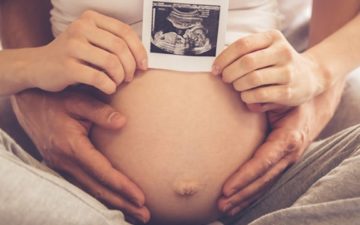 Who should consider using an egg donor?
Who should consider using an egg donor?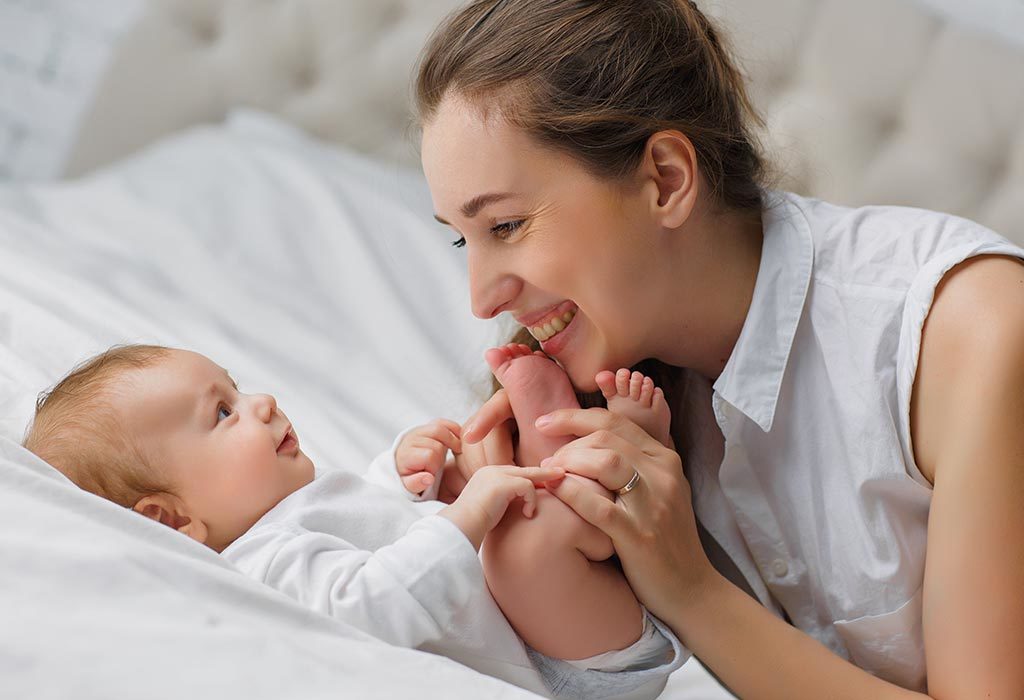
 What are egg donation requirements?
What are egg donation requirements?
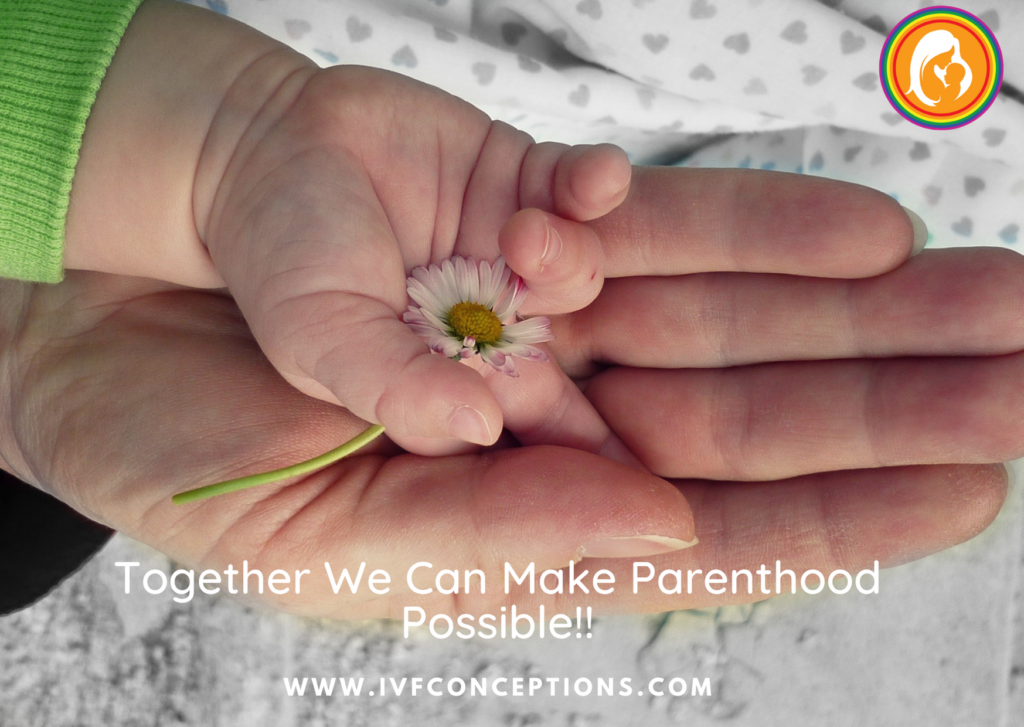
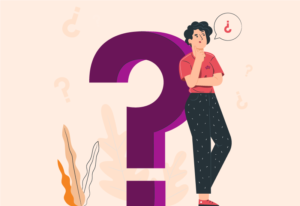 How Much Does Egg Donor Cost?
How Much Does Egg Donor Cost?